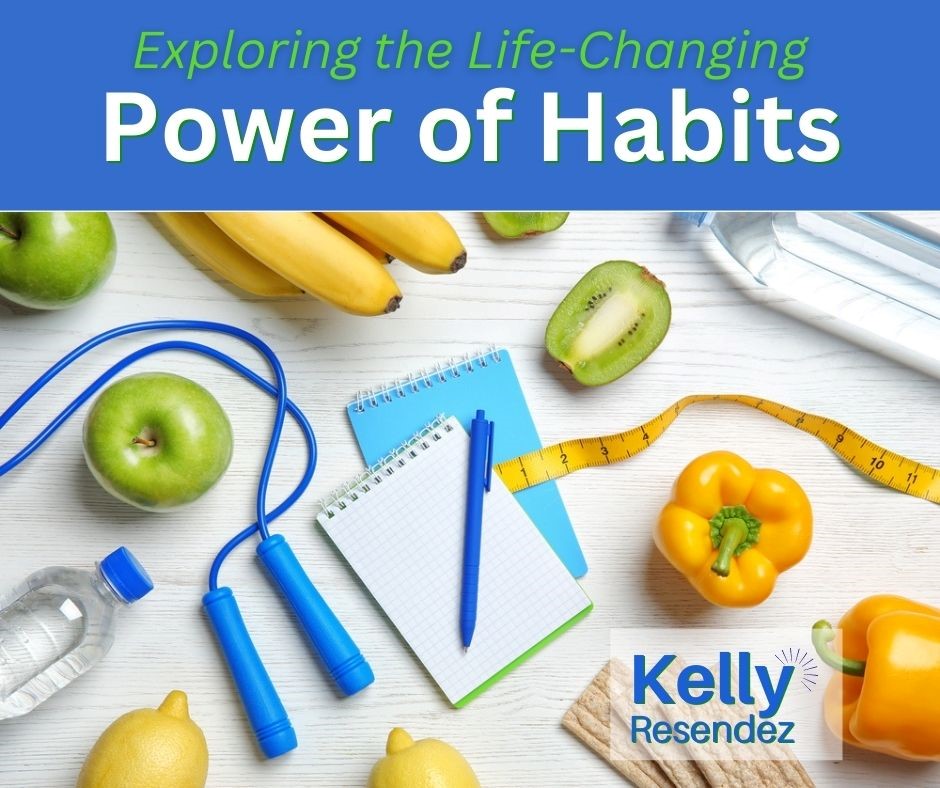
Green & clean energy tech and trends we’ll see in 2023 and beyond.
February 21, 2023
The 5 Keys to Breaking Bad Habits (and Setting Positive New Ones)
April 25, 2023
Our lives are a culmination of our choices, circumstances, environment, and how we’ve chosen to react.
But, more than anything else, the quality (and enjoyment) of our lives is a function of our habits. Those seemingly little things we do nearly automatically daily add up to an important determiner of our existence.
In fact, a Duke University study found that about 40% of what we do is determined by our preset habits – not by our conscious decisions.
So, what do we need to know about habits, why is it so hard to break bad habits, and how can we build new, healthy habits?
What is a habit?
A habit is just a behavioral routine that’s become automatic in our hard-wired search to maximize pleasure (and minimize pain) in response to a certain context or goal. Habits are also described as unconscious rituals or practices that free up our brains to make more important, complex, and pressing decisions.
Our habits may be negative or unhealthy, such as eating when stressed, checking our phones too frequently, or smoking. Habits can also be positive (and therefore increasingly healthy), like eating smaller portions, hitting the home gym every morning, and taking time to meditate.
Habits vs. goals and motivation.
Many of us confuse habits with goals or motivation. But while motivation is enough to get you started and take the first step, most goals will fall by the wayside without forming new habits.
The reality is that if we fail to set new habits, behavioral change is usually ineffective at best. A good example is when many of us set resolutions for the new year, only to be abandoned by the time the calendar flips to February (or far before).
Like most things that dictate our behavior, habits can be credited (or faulted) to our nervous system, which is always seeking a hit of dopamine as a reward. In that way, we’re hard-wired to seek pleasure and avoid pain.
Habits are a function of that process. According to renowned clinical psychologist and neuropsychologist Dr. Sanam Hafeez, “Any habit we develop is because our brain is designed to pick up on things that reward us and punish us.”
How do our brains first set new habits?
Our brains are essential pattern recognition machines, sorting through incalculable stimuli and messages from the outside world every day. When your brain does recognize a connection between action and reward (dopamine, dopamine, dopamine!), it sorts that information into its filing cabinet area of the brain, called the basal ganglia.
While the basal ganglia is the part of the brain where we process memories and emotions, it’s not the conscious, rational, decision-making area of the brain (that’s the prefrontal cortex).
So, the basal ganglia is responsible for initiating new habits as well as reinforcing existing habits. But that also means our habits are not always logical, rational, or even conscious decisions. That’s why habits are so hard to break (especially those bad habits), but that can also work in your favor once you establish good habits.
How do we build positive new habits?
Anyone has the power to set positive new habits, thanks to the brain’s self-directed neuroplasticity. During that process, we can intentionally rewire our brains to create new, healthy, or positive habits.
According to multiple studies, it takes between 18-254 days for someone to form a new habit. Of course, that’s a very wide range, with the variance due to a range of factors like the habit being sought, lifestyle, existing bad habits, health, age, and existing neuroplasticity.
The good news is that the more you exhibit the discipline to create new habits, the easier it becomes, the faster it becomes ingrained, and the stronger the new habit becomes.
The Habit Loop.
In 1999, a team of psychologists at the Massachusetts Institute of Technology (MIT) discovered a feedback loop between cues, routines, and rewards. Much later in his 2012 book, “The Power of Habit,” author and journalist Charles Duhigg called this “the habit loop,” coining the phrase.
Remember that our brains are hard-wired to find patterns that make things easier and more pleasurable for us, delivering hits of dopamine whenever possible.
Here is a summary of the Habit Loop:
- Cue
We first experience some sort of stimulus that acts as a trigger, such as an emotion, interaction, location, or even an emotional state. - Craving
That trigger causes us to seek a specific outcome that we’ve found rewarding in the past, motivating us to act. - Response
Seeking that dopamine rush that we’ve achieved in the past with the same behavior, we then entertain those same thoughts, actions, and behaviors in search of that outcome. - Reward
Once you’ve achieved that desired outcome, you feel a sense of reward or satisfaction (dopamine). That pleasure (or relief) you experience reinforces the original cue, reinforcing that cue the next time you are faced with the same stimuli.
Thus, t becomes a self-perpetuating loop, which is why bad habits are so hard to break, and it takes significant time and discipline to set new, positive habits.
All of our habits can be lumped into at least one of three categories:
1) Healthy habits
2) Unhealthy habits
3) Unnoticeable habits
Of course, what is healthy/unhealthy can change over time based on context, environment, age, etc.
There are plenty of benefits to initiating new habits in your life, including these:
• Improve our health and fitness
• Boost self-esteem
• Longer life expectancy
• Garner respect and admiration from friends, family, coworkers, etc.
• More effective coping skills
• Lower levels of stress
• Aid learning new skills, knowledge, or even languages
• Improved discipline
• Increased professional success
• Better relationships
• Higher levels of happiness and joy
• Better focus and mental clarity
• Improved confidence
Are there bad habits you’d like to break? New, healthy, and positive habits you’d like to start? Chances are that there are more than a few good habits you’d love to form, and the effect on your life can be amazing!
In a future blog, I’ll cover the most effective techniques and methods of breaking bad habits – and setting new, transformational ones.



